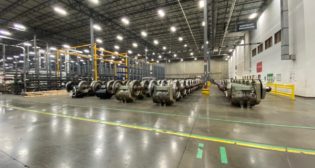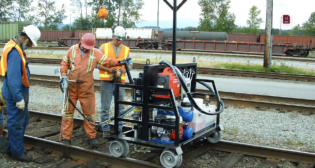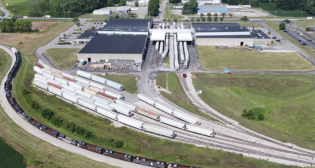
SNCF sees (and seeks) U.S. HSR opportunities
Written by William C. Vantuono, Editor-in-ChiefFrench National Railways (SNCF), which owns and operates France’s TGV high speed rail network, said Friday it had responded to the Federal Railroad Administration’s Request For Expression of Interest process with respect to four of FRA’s 10 prospective HSR corridors: California, Florida, Texas, and the Chicago Hub Network.

SNCF said each of the four submissions, filed September 14, outlines SNCF’s project rationale for the project, including: evaluation of the benefits of high speed rail networks to the targeted communities and environment; detailed technical descriptions of the project, including proposed route; estimated operations costs, services, and schedules; the project’s business model, including simulated revenue, financial statements, and possible financing opportunities with both the public and private sectors; and the plan’s compliance with existing legislation and the possibilities for federal, state, and local government partnerships.
SNCF Chairman Guillaume Pepy, who also is chairman of Eurostar service, wrote that that in California, Florida, and Texas, SNCF’s review and analysis of the available data regarding these three states leads it to the preliminary conclusion that HSR passenger service at speeds of 220 mph would produce significant public benefits, offsetting “by almost twice the public investment in the design and construction of the systems.”
Concerning the Chicago/Midwest Hub, Pepy said local and state authorities in and around this corridor intend to effect a dramatic improvement in the public transportation system; Pepy said SNCF believes 220 mph service would also work for this region, and proposed a 1,400-mile network including a bypass line in Chicago, servicing 28 stations in seven states.
Said Pepy, “While the RFEI process in the United States, first announced in 2008, has been overtaken somewhat by more recent legislation and a new process, we elected to proceed with our detailed submission on the four corridors in the interests of advancing the discussion about how high speed rail can benefit the U.S., and especially the regions where high speed rail planning is most advanced.”
He continued, “The United States is well-suited for high speed rail, and the significant benefits, beyond being a better transportation option, include economic stimulus, community enhancement and growth, environmental advancements, energy efficiencies, and reduced dependence on foreign oil.
“SNCF has a longstanding and strong interest in participating in the development of high speed rail in the United States and hopes that its decision to proceed with the RFEI submission advances the conversation and underscores its commitment and ability to help the United States realize the potential for HSR systems,” Pepy said.



